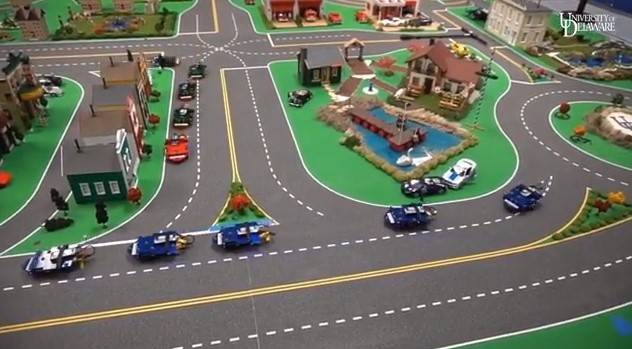Flying cars still still don’t seem to be on the horizon any time soon, but it’s pretty well accepted that the smart cities of the future will run on automated, driverless vehicles.
Someday, we’ll look back at our old and dangerous manual gas guzzlers in disbelief that we really drove those things — at least if the work of smart-city researchers like Andreas Malikopoulos, an associate professor in the University of Delaware’s Department of Mechanical Engineering, becomes reality.
UDaily reports:
Malikopoulos is the principal investigator of a $4.2 million, three-year project funded by the Advanced Research Projects Agency for Energy (ARPA-E) through its NEXT-Generation Energy Technologies for Connected and Automated On-Road Vehicles (NEXTCAR) program to improve the efficiency of an Audi A3 e-tron by at least 20 percent. The partners of this project are the University of Michigan, Boston University, Bosch Corporation, and Oak Ridge National Laboratory.
ARPAE’s NEXTCAR program was established to advance connected and automated vehicle technologies to reduce energy consumption in these vehicles by 20 percent. These vehicle improvements could yield many benefits for Americans, including improvements to urban air quality and a reduced dependence on imported oil, the Department of Energy reports.
The research includes human-driven cars that are connected via internet and fully automated robotic cars, which are tested in a functional model of a modern smart city.
Watch the mini smart city go!
https://youtu.be/RdO9NAZqUzc







